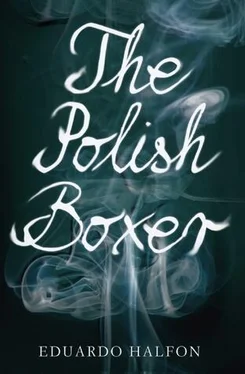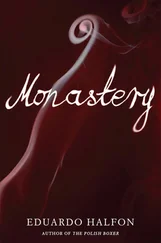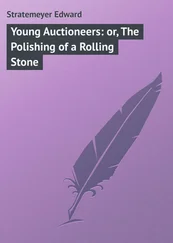Eduardo Halfon - The Polish Boxer
Здесь есть возможность читать онлайн «Eduardo Halfon - The Polish Boxer» весь текст электронной книги совершенно бесплатно (целиком полную версию без сокращений). В некоторых случаях можно слушать аудио, скачать через торрент в формате fb2 и присутствует краткое содержание. Год выпуска: 2012, Издательство: Bellevue Literary Press, Жанр: Современная проза, на английском языке. Описание произведения, (предисловие) а так же отзывы посетителей доступны на портале библиотеки ЛибКат.
- Название:The Polish Boxer
- Автор:
- Издательство:Bellevue Literary Press
- Жанр:
- Год:2012
- ISBN:нет данных
- Рейтинг книги:4 / 5. Голосов: 1
-
Избранное:Добавить в избранное
- Отзывы:
-
Ваша оценка:
- 80
- 1
- 2
- 3
- 4
- 5
The Polish Boxer: краткое содержание, описание и аннотация
Предлагаем к чтению аннотацию, описание, краткое содержание или предисловие (зависит от того, что написал сам автор книги «The Polish Boxer»). Если вы не нашли необходимую информацию о книге — напишите в комментариях, мы постараемся отыскать её.
marks the debut of a major new Latin American voice in English.
The Polish Boxer — читать онлайн бесплатно полную книгу (весь текст) целиком
Ниже представлен текст книги, разбитый по страницам. Система сохранения места последней прочитанной страницы, позволяет с удобством читать онлайн бесплатно книгу «The Polish Boxer», без необходимости каждый раз заново искать на чём Вы остановились. Поставьте закладку, и сможете в любой момент перейти на страницу, на которой закончили чтение.
Интервал:
Закладка:
Next came Chekhov. They read three relatively short stories and I gathered no one understood a word. Or maybe no one read them. Frustrated, I gave them a test for the remainder of the period, and sat before them enthralled, reading one of Juan Kalel’s notebooks.
After class, Juan was there when I left, leaning against the wall again, waiting for me. We walked to the cafeteria, and this time he insisted on buying the coffee. I thanked him. Once we’d sat down, I pulled out his notebook and placed it on the table and lit a cigarette. I asked him what he was doing studying economics, but he just shrugged, and we both knew it was a ridiculous question. What does your family do in Tecpán? My father tends an orchard in Pamanzana, just outside of Tecpán, he said, and my mother works in a textile factory. No siblings? Three sisters, all younger. He told me his scholarship covered housing too, paying for a room in a student residence in the city. What about you, Halfon, why did you study engineering? Because I was a fool, I said, and then we sat in silence for a few minutes, drinking coffee while I smoked and wondered about his family life. He was incongruous, Juan Kalel. Sometimes he seemed to radiate the most absolute innocence, an utter naïveté, as genuine and obvious as the scar on his cheek. But other times he gave the impression of understanding everything, of having lived and suffered through things that most of us come to know only through reading or supposition or puerile theories. Without smiling, he seemed always to be smiling, and without crying, he seemed to have indelible tears on his cheeks. I asked him who his favorite poets were and he said Rimbaud and Pessoa and Rilke. Especially Rilke, he said. I don’t see much Rilke in your poems, Juan, or at least not in the ones I’ve read so far. Rilke is in all of my poems, he said, and I didn’t ask him why, although much later I would come to understand perfectly. You don’t write poetry? he asked. Never, I said, stubbing out my cigarette, and I was going to say that I didn’t consider myself a poet, that in my opinion, to be a poet you have to believe you are one, be born one, whereas a prose writer can slowly evolve — but in the end I didn’t manage to say anything at all. Someone greeted me from behind, and when I turned, I found myself looking into Annie Castillo’s molasses eyes, which is simply a figure of speech, because the only thing molasses about them was a mistaken memory. Still, I stood up.
How are you, Eduardo? She was clasping her books to her chest, like a life vest, I thought, and she asked if we were busy. I said we were, a little. Oh well, I just wanted to thank you in person for answering my e-mail. No need, Annie. And to say that maybe one day, if you’re free, we could meet up and talk, she murmured, blushing. I said of course, I’d love to, and she smiled nervously. Let’s arrange a time by e-mail, then, she said, holding out a hand that was long and thin and far too cold.
After I sat back down, I lit another cigarette and noticed that as Annie walked away, Juan Kalel seemed particularly focused as he gazed at her ass.
Nothing happens in this story, declared an emaciated boy whose last name was Arreola. What, so some guy has a few drinks with an old friend and then he goes home. I mean, what’s so great about that? he scoffed, same thing I do every Friday. A few students laughed awkwardly.
I told them Joyce had to be read much more carefully. They had to know a little about the history of Ireland, the religious conflict. They had to grasp the context of each story, its structure and rich symbolism. But more than anything, they had to get a feel for his epiphanies.
Anyone know what epiphany means? A cat-like girl said it was sort of like the epiphany of Jesus. Pretty much, but what does that mean? Oh, I don’t remember, she said. All right, pay attention. Rustling of papers, readying of pencils. In Greek theater, the epiphany is the moment when a god appears to impose order on the scene. In the Christian tradition, the Epiphany refers to the revelation of Jesus’ divinity to the Magi. So, it’s a moment of clarity. And in the Joycean sense, an epiphany is an unexpected revelation had by one of his characters. A sudden spiritual manifestation, as he himself called it. I enunciated slowly. Does everyone get that? Absolute silence, which of course meant no.
Let’s start with the title. In Spanish, it’s called “Una nubecilla”—a small cloud, almost a cloudlet — but that’s a terrible translation, I said. None of the story’s Spanish translators, including the great Cuban writer Cabrera Infante, did a good job on that. The original title is “A Little Cloud,” which we know Joyce took from the Bible, Book of Kings. Anybody remember what happened in the Book of Kings? One girl started to say something and then faltered, stopped. I explained in very general terms that the people of Israel had been led away from God. Elijah prophesied a drought that would last until the people stopped worshiping false prophets and returned to Jehovah. And after two years without so much as a drop of rain, after the fall of Ahab and the false prophets, the people of Israel returned to God, and Elijah’s servant proclaimed: Behold, there ariseth a little cloud out of the sea, like a man’s hand. In other words, ladies and gentlemen: Watch out, it’s about to rain. Think about it. Not a small cloud, but a little cloud. Why is that distinction so important in the context of the story? Pause. Why am I insisting that Cabrera Infante and company not only did a poor job translating the title, but actually translated it in a way that leads the reader astray, further from what the story really means?
Juan Kalel raised his hand and said that there could be some sort of relation between the optimism of the approaching cloud in the Bible and the false optimism of Chico Chandler, as he was called in Spanish. Because in English, he continued, it would be Little Chandler and Little Cloud, right? Which in Spanish should have been Pequeño Chandler and Pequeña Nube. The repetition draws a parallel that we miss in the Spanish, he said. Quite pleased, I walked back to the desk for my coffee. What I mean is, Juan went on, Chandler is all talk. He talks about all the things he’s going to do, all the poems he’s going to write, and how one day he’s going to get out of Dublin, too, and live as free and fully as his friend Gallagher. But then when he gets home all he can do is yell at his son and make him cry. It’s sort of pathetic. And ironic too. The relationship between the story’s two littles, the cloud and Chandler, is ironic, because it’s obvious that he’s never going to do the things he wants to do. Unlike the biblical cloud, he’s hopeless. It’s as though he’s paralyzed, Juan said, gazing at me absently, as if something much more personal, but equally unattainable, had dawned on him.
Smiling, I asked them if they’d understood. Annie Castillo raised her hand. Well, I think there’s something more to it, she murmured. I said that there was, that of course there was something more. I mean, she began, I don’t know, but I don’t think the irony in the title is gratuitous. And then she fell silent. Precisely, I replied, but why not? Why isn’t it? What other irony do we get a glimpse of in the story, Annie? But she simply shook her head and shrugged. I turned to Juan, hoping to prod him into bailing her out, but he was engrossed in his notebook, scribbling furiously. A poem, perhaps. I don’t know, Annie hesitated, I guess Chandler’s attitude itself is ironic. Why? I probed. Well, she went on, because Chandler envies all the wrong things, all the immoral things, for want of a better expression, that Gallagher represents. And there’s irony in that.
Without another word, I picked up a piece of chalk and wrote a Joyce quotation on the board: My intention was to write a chapter of the moral history of my country and I chose Dublin for the scene because that city seemed to me the center of paralysis.
Читать дальшеИнтервал:
Закладка:
Похожие книги на «The Polish Boxer»
Представляем Вашему вниманию похожие книги на «The Polish Boxer» списком для выбора. Мы отобрали схожую по названию и смыслу литературу в надежде предоставить читателям больше вариантов отыскать новые, интересные, ещё непрочитанные произведения.
Обсуждение, отзывы о книге «The Polish Boxer» и просто собственные мнения читателей. Оставьте ваши комментарии, напишите, что Вы думаете о произведении, его смысле или главных героях. Укажите что конкретно понравилось, а что нет, и почему Вы так считаете.












